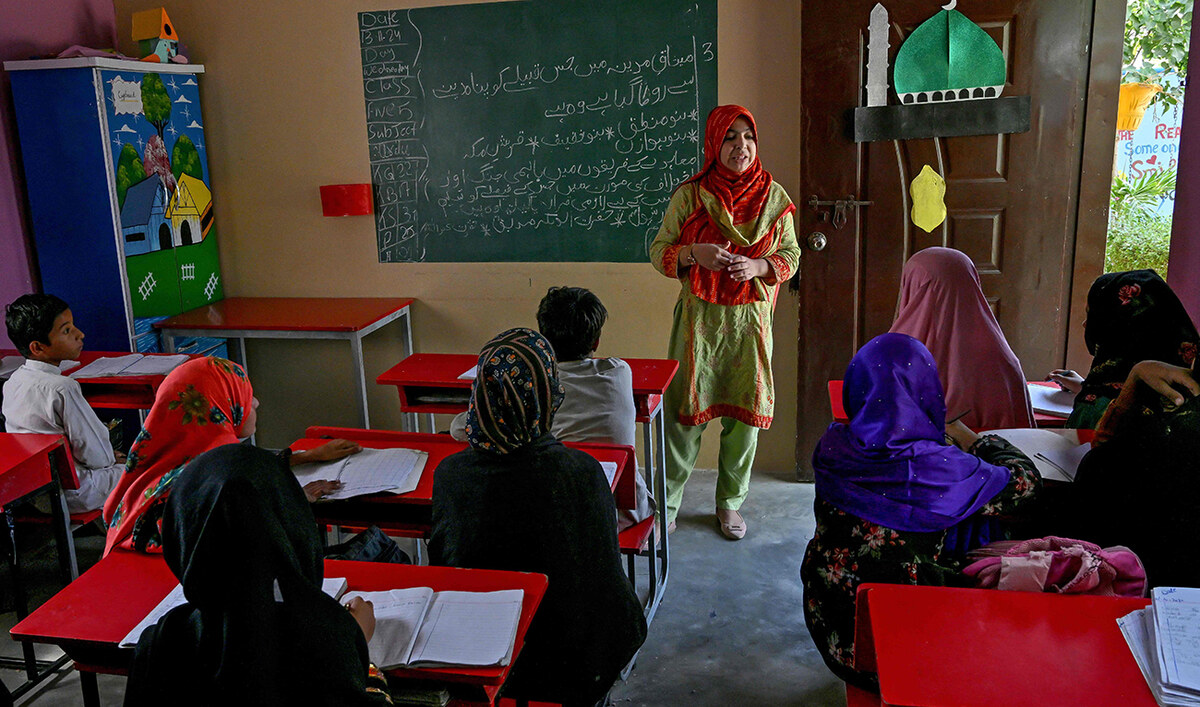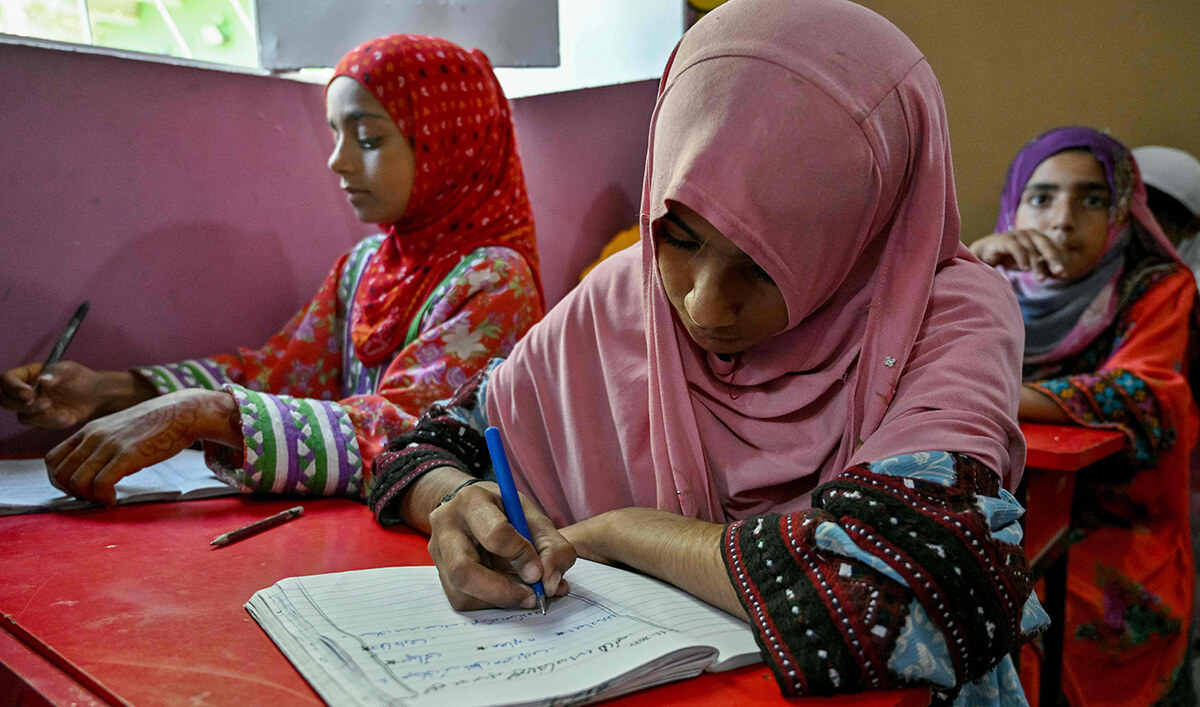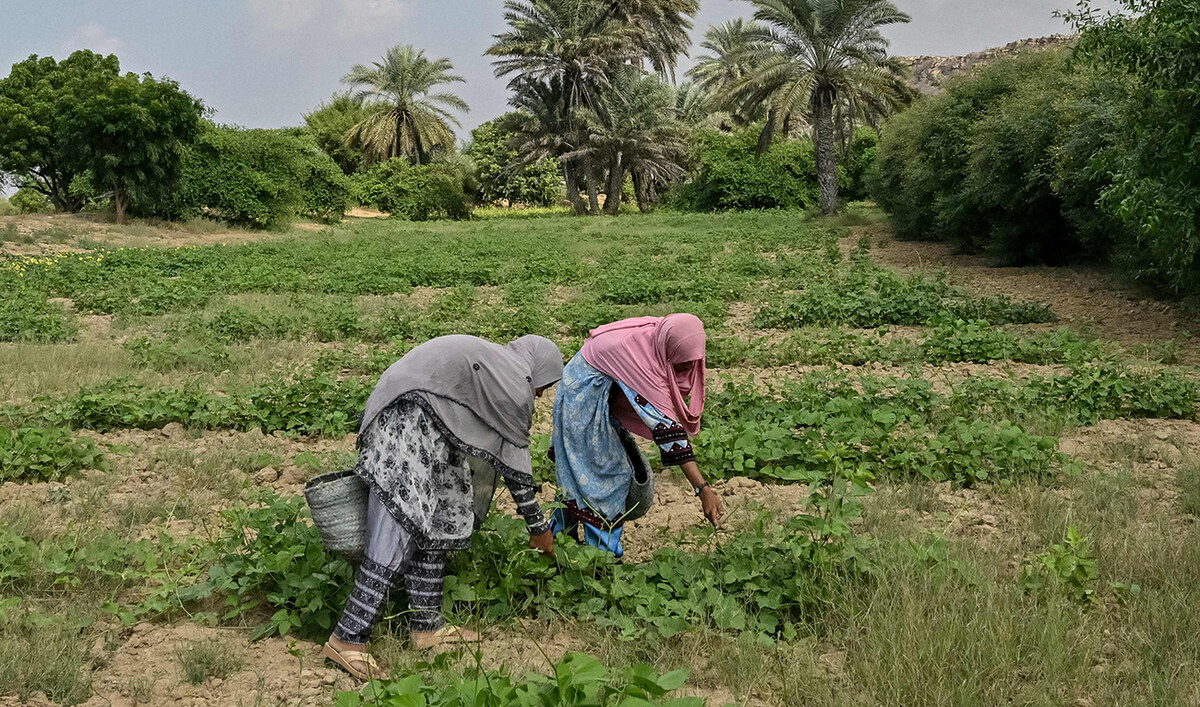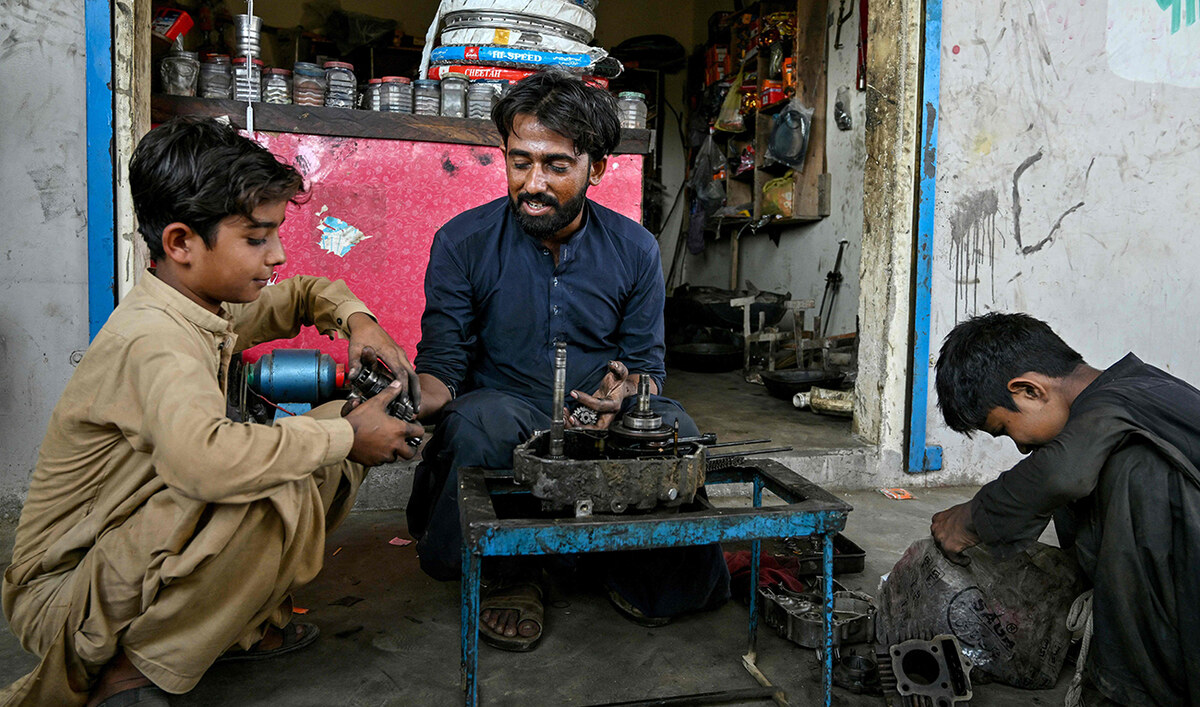ISLAMABAD: Pakistan’s former ruling party conceded defeat to cricket star-turned-politician Imran Khan ahead of final results from the country’s disputed election, which European Union monitors said on Friday had not been fought on a level playing field.
But several smaller parties with tens of thousands of supporters threatened nationwide street protests unless the entire election was re-run, though it was not made clear when they might begin.
Khan, during a speech declaring victory on Thursday, offered to investigate opposition allegations of vote-rigging and said he wanted to “unite” the country under his leadership.
The party of jailed ex-prime minister Nawaz Sharif initially rejected the so far incomplete results, but by Friday its leaders appeared to accept that Khan would be the next prime minister.
“We are going to sit on opposition benches, despite all the reservations,” said Hamza Shehbaz Sharif, a parliamentarian and the nephew of Nawaz Sharif, who is in prison after being convicted on corruption charges he disputes.
The allegations of rigging in Wednesday’s election followed a bitter campaign in which Pakistan’s powerful military was accused of tilting the race in favor of Khan, and trying to erase democratic gains made since the most recent spell of military rule ended in 2008. The army has repeatedly denied any interference.
The EU Election Observation Mission, in its preliminary findings, said the electoral process was “not as good” as the 2013 election and campaign week featured a “lack of equality” that meant it was not a level playing field for all parties.
“Many of our interlocutors acknowledged a systematic effort to undermine the former ruling party through cases of corruption, contempt of court and terrorist charges against its leaders and candidates,” chief EU observer Michael Gahler told a news conference.
The mission included 120 observers who visited 582 polling stations in all the provinces except Baluchistan.
CURRENCY CRDaesh
Gahler said EU observers had not witnessed any military interference in polling stations they assessed.
“On election day, polling was assessed as well conducted and transparent,” he said. “However, counting was somewhat problematic with staff not always following the procedures.”
He added later: “The credibility or the legitimacy of this process, that is for the people of Pakistan.”
The US State Department said it concurred with the observation mission’s conclusions that positive changes to the election framework were “overshadowed by restrictions on freedom of expression and unequal campaign opportunities” and shared its concerns about “flaws in the pre-voting electoral process.”
Although Khan appeared likely to fall short of the 137 seats needed for a majority in the National Assembly, his better-than-expected results mean he should be able to form a government with small coalition partners.
One of the first tasks for Khan, once he forms the government, will be to avert a currency crisis, following four devaluations of the rupee currency since December, which will likely require Islamabad to seek Pakistan’s second International Monetary Fund bailout since 2013.
The latest Election Commission of Pakistan official partial results showed Khan’s Pakistan Tehreek-e-Insaf (PTI), or Pakistan Movement for Justice party, had won 115 seats out of the 268 seats counted. The National Assembly has 272 seats in total but two have been postponed and results of two are awaited.
FULL RESULTS
The commission was expected to announce full results sometime on Saturday, nearly three days later than scheduled.
Sharif’s Pakistan Muslim League-Nawaz (PML-N)had 63 seats, the results showed. The Pakistan Peoples Party (PPP), led by Bilawal Bhutto Zardari, the son of assassinated two-time prime minister Benazir Bhutto, was third with 43 seats.
“(PML-N) would play the role of a strong opposition,” said Shehbaz Sharif, the PML-N president and brother of Nawaz Sharif, according to the English-language Dawn newspaper.
Later on Friday, however, Shehbaz Sharif joined several smaller parties who also alleged rigging met in capital Islamabad in a statement that rejected the results, though the PPP was not present.
Shehbaz Sharif has vowed to offer evidence to the election commission.
Both the PML-N and PPP say their party monitors at many voting centers were either kicked out during counting or had not received the official notifications of the precincts’ results, instead being given handwritten tallies they could not verify.
The smaller parties — including the Islamist coalition Muttahida Majlis-i-Amal with tens of thousands of supporters, said they would launch protests and boycott parliament, but Shehbaz Sharif said he would consult his party before taking such action.
“We do not consider this election to be the mandate of the public, but a theft of the people’s mandate,” said Maulana Fazal-ur-Rehman from the Jamiat Ulma-e-islam (JUI) party, part of the MMA coalition.
“We will organize protest rallies, he said.
Nearly finalized results also indicated religious parties that fielded more candidates than ever before failed to win any National Assembly seats.
The Allahu Akbar Tehreek party of Hafiz Saeed, who is accused of masterminding the 2008 attacks that killed 166 people in the Indian city of Mumbai, did not win a single seat. Neither did candidates linked to Sunni extremist group Ahl-e-Sunnat Wal Jamaat.
Tehreek-e-Labaik Pakistan, which campaigns under the rallying cry “Death to Blasphemers” also failed to win any seats, although results indicate it garnered a large following across Punjab.
Main parties concede Pakistan election to Imran Khan; protests threatened by others
Main parties concede Pakistan election to Imran Khan; protests threatened by others

- Several smaller parties threaten street protests
- Khan offers investigation of allegations of vote-rigging
Pakistan to open today two-day summit on girls’ education in Muslim countries

- The conference’s aim is to stress Islam’s message that both men, women have right to education
- Over 150 dignitaries from 44 Muslim and other friendly states are taking part in the conference
ISLAMABAD: Pakistan will open today, Saturday, a two-day summit on girls’ education in Muslim communities, with over 150 dignitaries from 44 Muslim and other friendly states taking part in the conference.
The global summit, hosted by the Pakistani education ministry, aims to address the challenges and opportunities in advancing girls’ education across Muslim communities worldwide, according to Pakistan’s foreign office.
Prime Minister Shehbaz Sharif will inaugurate the conference and deliver a keynote address at the opening session. He will reaffirm the nation’s commitment to promoting girls’ education and gender equality.
Education Minister Khalid Maqbool Siddiqui this week said the primary aim of the conference is to stress the implementation of the Islamic message, which clearly states that both men and women have the right to education.
“By promoting girls’ education, we can build better homes, a better society and a stronger nation,” he said at a media briefing, adding that an “Islamabad Declaration” will be announced at the end of the summit that would outline decisive steps to transform girls’ education in Islamic countries.
Several dignitaries, including Organization of Islamic Cooperation (OIC) Secretary-General Hissein Brahim Taha and Egyptian Grand Mufti Dr. Nazir Mohamed Ayad, have arrived in Pakistan to attend the summit.
Pakistan has also extended an invitation to Afghanistan to join representatives from other Islamic countries and attend the conference in Islamabad.
“We have extended an invitation to Afghanistan to participate in this conference and hope that their delegation will attend as it is a very important neighboring country,” Siddiqui said.
Since the Taliban’s return to power in 2021, at least 1.4 million Afghan girls have been denied access to secondary education, according to a report by the United Nations International Children’s Emergency Fund (UNICEF) released in August last year.
Siddiqui said everyone respects tribal customs and cultures, but all such practices must align with Islamic values in Muslim countries, adding that nothing holds precedence over them.
“In Islam, there is no justification for restricting women’s education,” he added.
‘Education apartheid’: schooling in crisis in Pakistan

- Pakistan is facing severe education crisis, with over 26 million children out of school, the majority in rural areas
- Poverty is the biggest factor keeping children out of classrooms, but the problem is worsened by other factors too
ABDULLAH GOTH: Aneesa Haroon drops off her tattered school bag at her rural home in Pakistan and hurriedly grabs lunch before joining her father in the fields to pick vegetables.
The 11-year-old’s entry into school at the age of seven was a negotiation between teachers and her parents in her farming village on the outskirts of Karachi.
“Initially, many parents were not in favor of educating their children,” headteacher Rukhsar Amna told AFP.
“Some children were working in the fields, and their income was considered more valuable than education.”
Pakistan is facing a severe education crisis, with more than 26 million children out of school, the majority in rural areas, according to official government figures — one of the highest rates in the world.
This weekend, Pakistan will host a two-day international summit to advocate for girls’ education in Muslim countries, attended by Nobel Peace laureate and education activist Malala Yousafzai.
In Pakistan, poverty is the biggest factor keeping children out of classrooms, but the problem is worsened by inadequate infrastructure and underqualified teachers, cultural barriers and the impacts of climate change-fueled extreme weather.
In the village of Abdullah Goth on the outskirts of Karachi, the non-profit Roshan Pakistan Foundation school is the first in decades to cater to the population of over 2,500 people.
“There was no school here for generations. This is the first time parents, the community and children have realized the importance of a school,” said Humaira Bachal, a 36-year-old education advocate from the public and privately funded foundation.

Still, the presence of a school was just the first hurdle, she added.
Families only agreed to send their children in exchange for food rations, to compensate for the loss of household income that the children contributed.
In Abdullah Goth, most children attend school in the morning, leaving them free to work in the afternoon.
“Their regular support is essential for us,” said Aneesa’s father, Haroon Baloch, as he watched his daughter and niece pick okra to sell at the market.
“People in our village keep goats, and the children help graze them while we are at work. After finishing grazing, they also assist us with labor tasks.”

Education in Pakistan is also increasingly impacted by climate change.
Frequent school closures are announced due to heavy smog, heatwaves and floods, and government schools are rarely equipped with heating or fans.
In the restive provinces of Balochistan and Khyber Pakhtunkhwa, education faces significant setbacks due to ongoing militancy, while classes are routinely disrupted in the capital Islamabad due to political chaos.
Although the percentage of out-of-school children aged between five and 16 dropped from 44 percent in 2016 to 36 percent in 2023, according to census data, the absolute number rises each year as the population grows.
Girls all across the country are less likely to go to school, but in the poorest province of Balochistan, half of girls are out of school, according to the Pak Alliance for Maths and Science, which analyzed government data.
Cash-strapped Pakistan’s Prime Minister Shehbaz Sharif declared an “education emergency” last year, and said he would increase the education budget from 1.7 percent of GDP to 4 percent over the next five years.
Public schools funded by the government offer free education but struggle with limited resources and overcrowding, creating a huge market for private schools whose costs can start from a few dollars a month.
In a parallel system, thousands of madrassas provide Islamic education to children from the poorest families, as well as free meals and housing, but often fail to prepare students for the modern world.

“In a way, we are experiencing an education apartheid,” said Adil Najam, an international relations professor at Boston University who has researched Pakistan’s education system.
“We have at least 10 different systems, and you can buy whatever quality of education you want, from absolutely abysmal to absolutely world-class.
“The private non-profit schools can prime the pump by putting (out) a good idea, but we are a country of a quarter billion, so these schools can’t change the system.”
Even young student Aneesa, who has set her mind on becoming a doctor after health professionals visited her school, recognizes the divide with city kids.
“They don’t work in field labor like we do.”

In the small market of Abdullah Goth, dozens of children can be seen ducking in and out of street-side cafes serving truck drivers or stacking fruit in market stalls.
Ten-year-old Kamran Imran supports his father in raising his three younger siblings by working at a motorcycle workshop in the afternoons, earning 250 rupees ($0.90) a day.
Muhammad Hanif, the 24-year-old owner of the workshop, does not support the idea of education and has not sent his own children to school.
“What’s the point of studying if after 10 to 12 years, we still end up struggling for basic needs, wasting time and finding no way out?” he told AFP.
Najam, the professor, said that low-quality education was contributing to the rise in out-of-school children.
Parents, realizing their children cannot compete for jobs with those who attended better schools, instead prefer to teach them labor skills.
“As big a crisis as children being out of school is the quality of the education in schools,” said Najam.
Rights network criticizes flood compensation and rehabilitation efforts in Sindh

- Network’s fact-finding team says not much consultation was done while designing houses for flood-hit families
- It says these one-room ‘flood-resilient’ structures lack basic amenities like toilets, can’t withstand heavy rain
KARACHI: A fact-finding mission conducted by a network of rights activists in South Asia on Friday criticized Pakistan’s response to the devastating 2022 floods, highlighting significant shortcomings in housing, sanitation and health care for flood-affected communities in Sindh.
The 2022 floods, triggered by unprecedented monsoon rains and glacial melt, displaced millions, killed over 1,700 people and caused damages exceeding $35 billion, leaving vast areas submerged for months.
The fact-finding team of South Asians for Human Rights (SAHR) visited Sindh, surveying several districts, including Larkana, Shikarpur, Nawabshah and Hyderabad, from January 6-10 to assess the government’s compensation and rehabilitation efforts.
“The preliminary findings contradict the provincial government’s claims of launching one of the world’s largest housing projects for flood affectees,” said Ahmad Rafay Alam, an environmental lawyer and SAHR Bureau Member, during a press conference in Karachi.
The mission raised serious concerns over the proposed one-room “flood-resilient” housing model, calling it insufficient and lacking essential amenities such as kitchens and toilets.
“With skyrocketed inflation, the Rs300,000 ($1,077) compensation per house is unreasonably low,” SAHR said in a statement.
It maintained there was not much consultation while designing the houses, questioning their climate resilience and warning they were unlikely to survive future disasters.
“More severe natural calamities will impact this vulnerable population, and it is highly unlikely that these structures can withstand another heavy rain,” it noted.
In Dhand, a village near Mohenjo Daro, SAHR found that only four out of 40 destroyed houses had been rebuilt.
“Some families still live in tents or neighbors’ homes, and with average family sizes of six people, it is impossible to live in these single rooms, especially when some family members are married,” it said.
The regional rights network urged the government to conduct fresh surveys to ensure no genuinely affected individuals were left out. It informed that many residents had reported difficulty in finding their names on government beneficiary lists, delaying relief.
SAHR also highlighted poor sanitation and health care in affected areas, reporting that villages lacked drainage systems, leading to outbreaks of diarrhea, malaria and skin infections.
Arab News reached out to provincial officials, including Sindh’s Information Minister Sharjeel Memon and Chief Minister Murad Ali Shah’s spokesperson Rasheed Channa, but received no response.
Sadia Javed, another government spokesperson, said she would review the mission’s findings but had not responded by the time of filing this report.
Pakistan court halts Afghan musicians’ repatriation for two months, orders decision on asylum cases

- Afghan musicians feared persecution and fled their country after the Taliban’s return to power in 2021
- They filed a petition in the Peshawar High Court last year amid the government’s deportation campaign
PESHAWAR: A Pakistani court issued a short order on Friday, barring the forced repatriation of about 150 Afghan singers and musicians who fled their country after the Taliban’s return to power in 2021 and directing federal authorities to determine their status within two months.
The Peshawar High Court (PHC) issued the order after the musicians filed a petition last year, seeking asylum amid fears of persecution in their home country.
The Taliban had imposed a strict ban on music during their first stint in power from 1996 to 2001, suppressing musical expression and leading to the persecution of artists across Afghanistan.
A single-member bench of Justice Wiqar Ahmad issued a two-page short order, accepting the plea of the musicians and restraining the government from forcibly repatriating them to Afghanistan.
“The Federal Government or its notified officer shall decide cases of all these petitioners for grant or refusal of asylum within a period of two months,” the PHC order said.
“Till the final decision, these petitioners shall not be ousted from the territory of Pakistan nor otherwise compelled to leave Pakistan and go back to their native country Afghanistan,” it added.
Afghan nationals in Pakistan have lived in a state of uncertainty since 2023, when the government launched a major deportation drive against migrants living illegally in the country. The campaign primarily targeted Afghans amid an uptick in militant violence, with the government alleging that several of them were involved in attacks on Pakistani civilians and security forces.
The Afghan authorities in Kabul denied the allegations, saying their citizens were not responsible for Pakistan’s security challenges.
The court order said if the federal authorities were unable to decide the cases within 60 days, the interior ministry’s secretary should issue permission allowing the petitioners to stay for a period sufficient to reach a final decision.
“Law Enforcement Agencies of the Federal Government as well as the Provincial Government are restrained from taking any adverse action against these petitioners for their stay in Pakistan for a period of 60 days or such extended time if allowed by the Federal Government,” it added.
Afghan musicians described the court order as a “ray of hope,” saying the recent crackdown on their fellow nationals had sent shockwaves through their community.
“We were in fear, but the recent decision of the court has sparked happiness among our community,” Zarwali Afghan, a musician from Afghanistan, told Arab News. “We hope that the government will consider our cases on humanitarian grounds.”
The Afghan Taliban hold the belief that music is forbidden in Islam, though several schools of thought within the religion differ with their interpretation.
Last year, authorities in Kabul were compelled to clarify their stance after their diplomats in Pakistan and Iran refrained from standing during the playing of national anthems at official ceremonies.
The incident was perceived by both countries as disrespectful and contrary to diplomatic norms. However, the Afghan Taliban explained that their representatives meant no harm and would have stood if the national anthems had been played without background music.
Arab News attempted to seek a response from the interior ministry over the court order, but its spokesperson did not respond.
Pakistani PM, OIC chief urge global push for Gaza ceasefire

- The OIC leader is currently in Islamabad to attend a global conference on girls’ education in Muslim countries
- Shehbaz Sharif also met with the secretary general of the Muslim World League, the co-host of the conference
ISLAMABAD: Prime Minister Shehbaz Sharif and Organization of Islamic Cooperation (OIC) Secretary General Hissein Brahim Taha agreed on Friday the OIC must intensify pressure on the international community to secure an immediate ceasefire in Gaza during their meeting in Pakistan’s federal capital.
The top OIC official arrived in Islamabad earlier in the day to attend a two-day global conference on girls’ education in Muslim countries, set to begin on Saturday. He was received by Education Minister Khalid Maqbool Siddiqui upon arrival.
During the meeting, the prime minister thanked the OIC for its consistent support regarding the Kashmir dispute with his country’s nuclear rival, India.
Sharif strongly condemned Israel’s ongoing “genocidal campaign” in Gaza and stressed the need for an immediate and unconditional ceasefire, unrestricted humanitarian aid for Palestinians and global accountability for Israel’s conduct of war.
“Both leaders agreed that the OIC must maintain its pressure on the international community for an immediate ceasefire in Gaza,” read an official statement released by Sharif’s office after the meeting. “They emphasized that the resolution of the Palestine issue must align with UN resolutions and the aspirations of the Palestinian people.”
The meeting also touched on combating Islamophobia and other global and regional matters of mutual interest.
GIRLS’ EDUCATION
The OIC secretary general expressed gratitude for Pakistan’s warm reception and praised the country’s leadership role in addressing critical issues facing the Muslim world.
“The hosting the international conference on girls’ education in the Muslim world is an example of Pakistan’s leadership role in addressing important issues,” he said.
Separately, the prime minister also met with Sheikh Dr. Mohammad bin Abdulkarim Al-Issa, the secretary general of the Muslim World League (MWL).
Sharif commended the MWL’s partnership in co-hosting the two-day conference and emphasized that the event would send a strong global message about the Muslim world’s commitment to advancing girls’ education.
Dr. Al-Issa informed Sharif the conference would culminate in the Islamabad Declaration, a consensus document promoting girls’ education in Muslim countries.
He also informed the conference would feature renowned scholars, educators, and thought leaders from around the globe to address a wide range of issues affecting the Muslim world.















